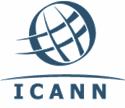 Today’s online world is defined by 22 different generic top-level domains (gTLDs), including .com, .net, .org, .info, .biz, etc. and approximately 250 country code TLDs (ccTLDs) such as .in and .uk etc. The Internet Corporation for Assigned Names and Numbers (ICANN) is now planning to introduce another set of TLDs. As per the new plans, organizations can propose and apply for gTLDs associated with particular interests or business sectors which ultimately has to be approved by ICANN. Accordingly, thousands of domain suffixes could be created, categorized by everything from industry to geography to ethnicity – such as .bank, .vegas, .canon, etc.
Today’s online world is defined by 22 different generic top-level domains (gTLDs), including .com, .net, .org, .info, .biz, etc. and approximately 250 country code TLDs (ccTLDs) such as .in and .uk etc. The Internet Corporation for Assigned Names and Numbers (ICANN) is now planning to introduce another set of TLDs. As per the new plans, organizations can propose and apply for gTLDs associated with particular interests or business sectors which ultimately has to be approved by ICANN. Accordingly, thousands of domain suffixes could be created, categorized by everything from industry to geography to ethnicity – such as .bank, .vegas, .canon, etc.
The introduction of new top-level domains could offer potential new business and online opportunities to organizations, in that, brand owners will be able to apply for .brand name, which could enhance their control over their online presence. New gTLDs will fall into the following categories:
- Brands: Brand owners, such as corporations, sports teams, and other high-profile entities, can protect their brands and trademarks, enhance brand trust, and create new ways to extend their brand and services to partners, resellers, and customers.
- Communities: Groups of like-minded organizations that share common missions, goals, and challenges can promote commercial or non-commercial offerings to better promote, protect, guide, and serve their communities.
- Cities or Regions (Geographic): Cities and regions can promote greater recognition of their areas, generate additional revenue, and better serve constituents.
- Generic Terms: This category covers terms that don’t fall under the previous three categories. Forward-thinking organizations and innovative entrepreneurs could pursue new business opportunities or build their online presence.
If ICANN approves new gTLDs, then organizations will have to spend additional resources on defensive domain name registrations associated with their brand names. They will have to incur costs associated with trademark policing and enforcement in efforts to protect their reputation and the safety of their consumers on the Internet.
Organizations that operate new suffixes will be able to collect registration fees from websites that want names. The fees could add up to millions of dollars a year if a website is popular enough.


Be the first to comment